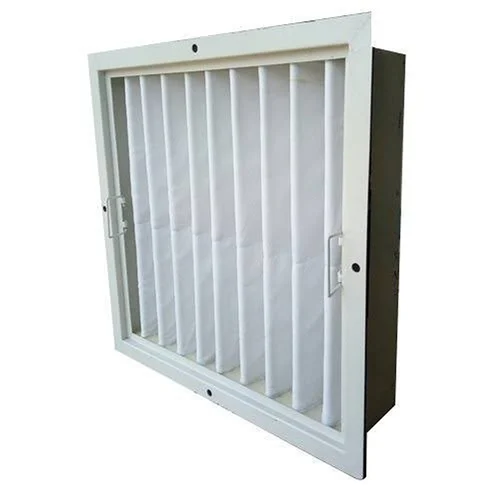
Duct Air Filters
Duct air filters, also known as HVAC (Heating, Ventilation, and Air Conditioning) filters or furnace filters, are essential components in a ventilation system. They serve to improve indoor air quality by capturing and removing airborne particles before the air is circulated throughout a building. Here are key aspects related to duct air filters:
- Purpose:
- Particle Removal: The primary function of duct air filters is to capture and remove airborne particles such as dust, pollen, pet dander, mold spores, and other contaminants from the air.
- Types of Air Filters:
- Fiberglass Filters: Inexpensive and disposable, these filters are common but may have lower efficiency.
- Pleated Filters: Made of pleated fabric, these filters offer a higher surface area, better efficiency, and are available in various MERV (Minimum Efficiency Reporting Value) ratings.
- HEPA Filters: High-Efficiency Particulate Air filters are extremely efficient at capturing very small particles and are often used in sensitive environments like hospitals or laboratories.
- Electrostatic Filters: These filters use an electrostatic charge to attract and capture particles.
- Activated Carbon Filters: Effective at removing odors and certain gases by adsorption.
- MERV Ratings:
- MERV ratings range from 1 to 20, indicating the filter’s ability to capture particles of different sizes. Higher MERV ratings correspond to higher filtration efficiency.
- For residential applications, filters with MERV ratings between 8 and 13 are generally recommended.
- Filter Replacement:
- Filters need regular replacement to maintain optimal performance. The frequency depends on factors such as the type of filter, the level of airborne particles, and the usage of the HVAC system.
- Neglecting filter replacement can lead to reduced system efficiency, increased energy consumption, and compromised indoor air quality.
- Installation:
- Duct air filters are typically installed in the return air ducts, where air is drawn into the HVAC system.
- Proper installation is crucial to ensure that the filter fits securely and that air flows through it effectively.
- Filter Bypass:
- A proper seal is important to prevent air from bypassing the filter. If air can circumvent the filter, its effectiveness is diminished.
- Benefits:
- Improved Air Quality: Duct air filters help remove allergens and particles, leading to improved indoor air quality.
- System Protection: Filters prevent dust and debris from entering and damaging the HVAC system’s components, such as the blower and coils.
- Energy Efficiency: Clean filters contribute to the efficient operation of the HVAC system, reducing energy consumption.
- Considerations:
- System Compatibility: It’s important to choose filters that are compatible with the HVAC system’s specifications.
- Allergies and Sensitivities: For individuals with allergies or respiratory sensitivities, higher-efficiency filters may be beneficial.
Regular maintenance, including the timely replacement of duct air filters, is crucial for ensuring the effectiveness and efficiency of HVAC systems while maintaining a healthy indoor environment.